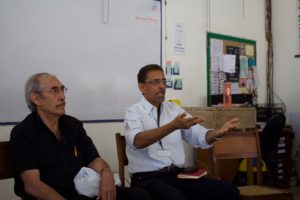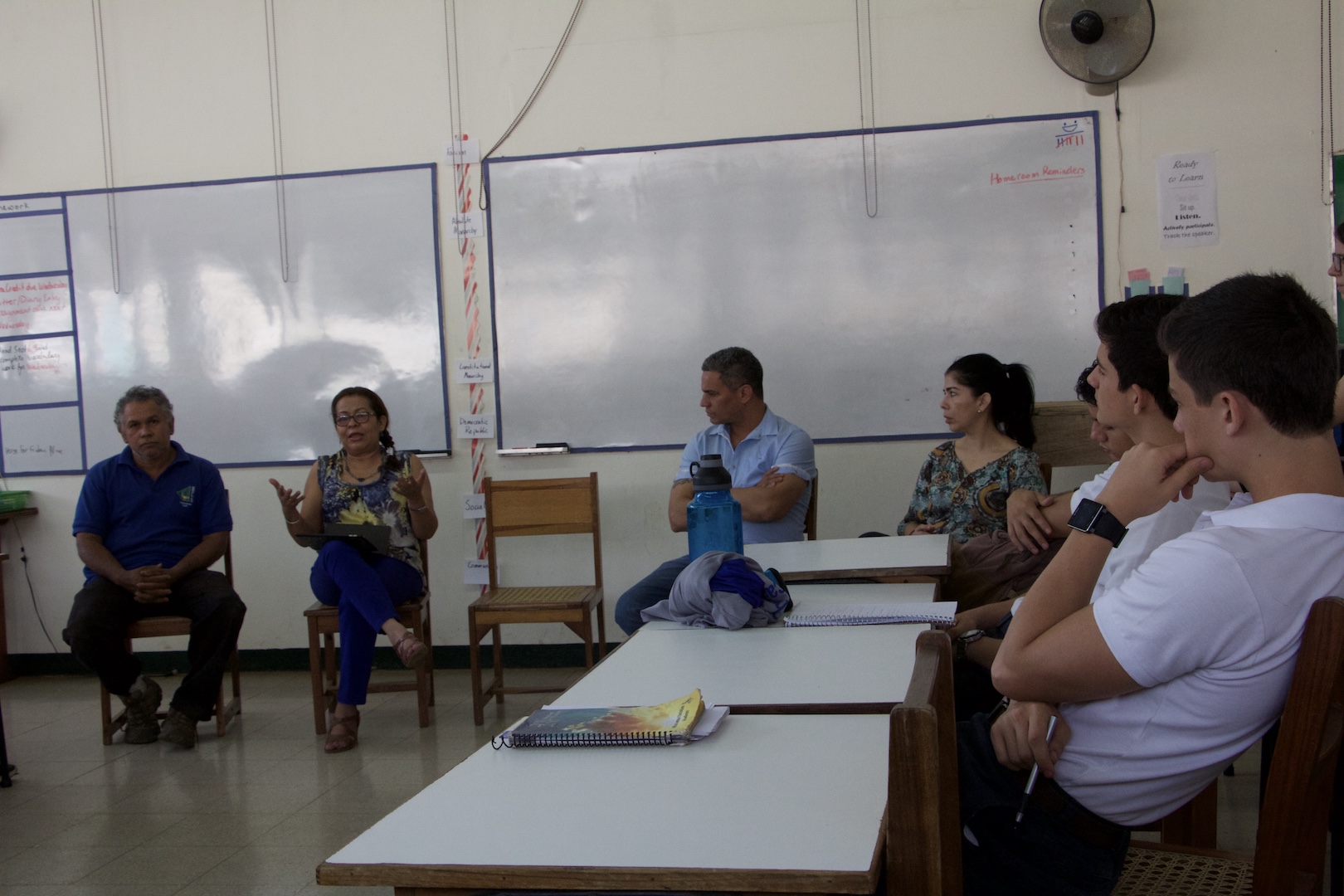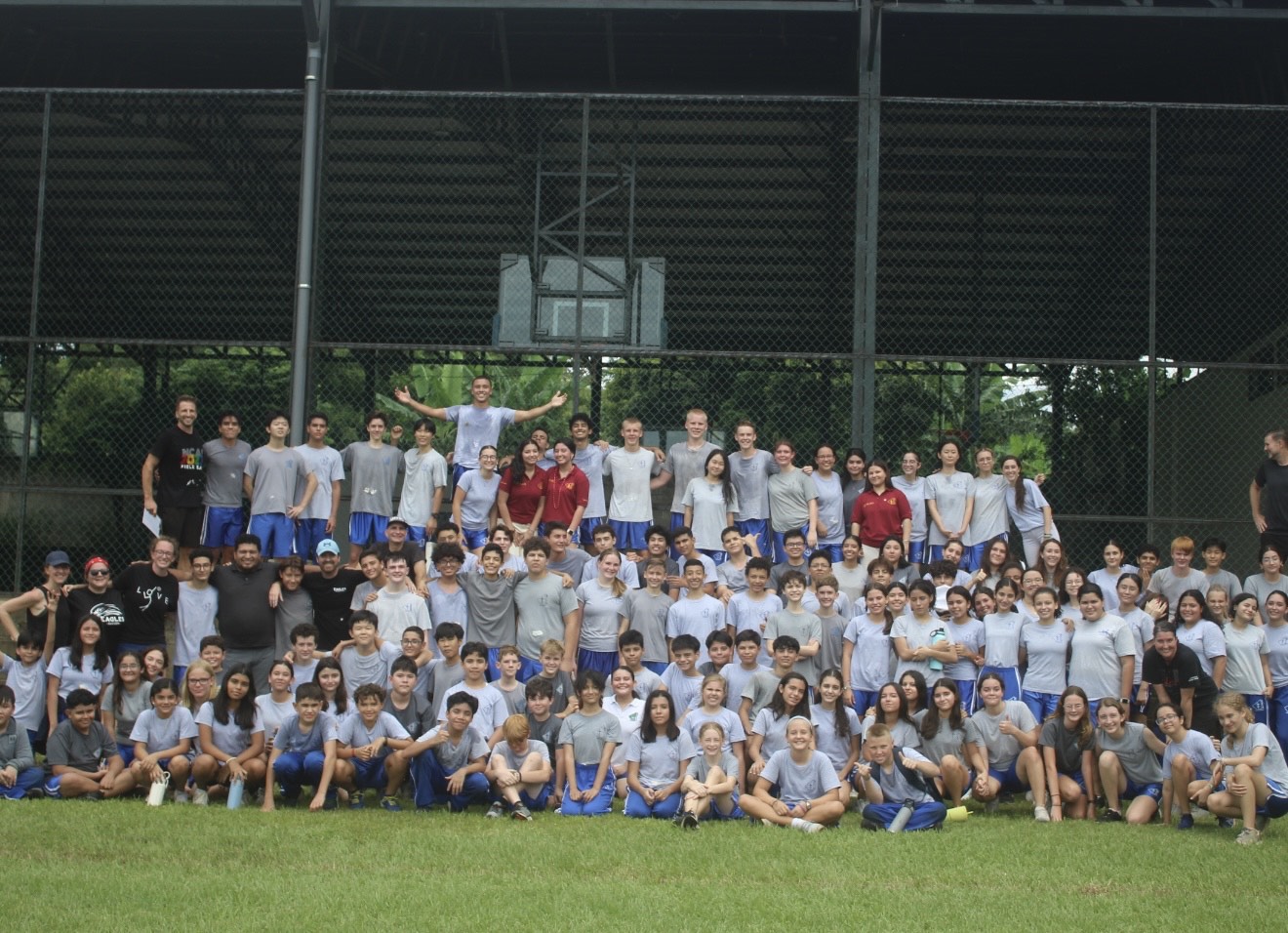On Thursday, April 6, 2017, the AP Language and Composition classes hosted several guests for a panel discussion on life and war in Nicaragua in the 1970s and 1980s. The juniors and seniors in these classes had just finished reading Blood of Brothers by former New York Times reporter Stephen Kinzer. Kinzer worked as the NYT Bureau Chief in Managua during the turbulent Sandinista Revolution and Counter-Revolution of the 1980s. On April 6, students in AP Language were able not just to read about the recent past in Nicaragua, but also to see, hear, and speak to those who lived it.
The invitees for the panel in first period included a very diverse range of experience. Mrs. Golda Silva shared the privilege her family enjoyed during the war because of their ties to the Sandinista government. Mrs. Sylvia Mejia and Mr. Eddy Marin explained the dramatic effects of the Sandinista draft on church and family life. Others, like Mrs. Ivania Matamoros and Mr. Chepe Medina, had more direct roles in the events of the time: Mrs. Matamoros as part of the Sandinista Literacy Campaign where, at the age of thirteen,
she taught seven adults in her hometown of Rio Blanco how to read, and Mr. Medina as a member of the Sandinista army.
Second period’s panel included members from outside our NCAI community. Mr. Hernaldo Molina was present to discuss his experience as a once-avid Sandinista whose views were tempered by his time fighting contras in the north. The other two guests actually appeared in the novel itself: Dr.  Moises Hassan was a member of the junta that ruled Nicaragua in the first years of the Sandinista government, and Mr. Victor Hugo Tinoco was the first FSLN ambassador to the U.N.
Moises Hassan was a member of the junta that ruled Nicaragua in the first years of the Sandinista government, and Mr. Victor Hugo Tinoco was the first FSLN ambassador to the U.N.
To interact with living history in the form of the memories of those who shaped and experienced it is a unique opportunity. Nicaragua is still in a time of transition and change politically and economically—the reverberations of the 70s and 80s are felt still today. It’s up to the next generation to determine the ending to these beginnings!



